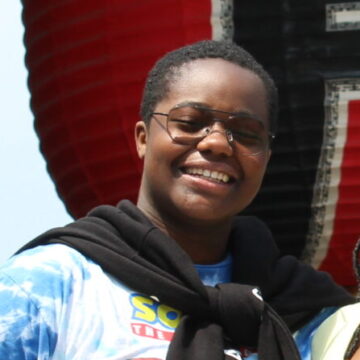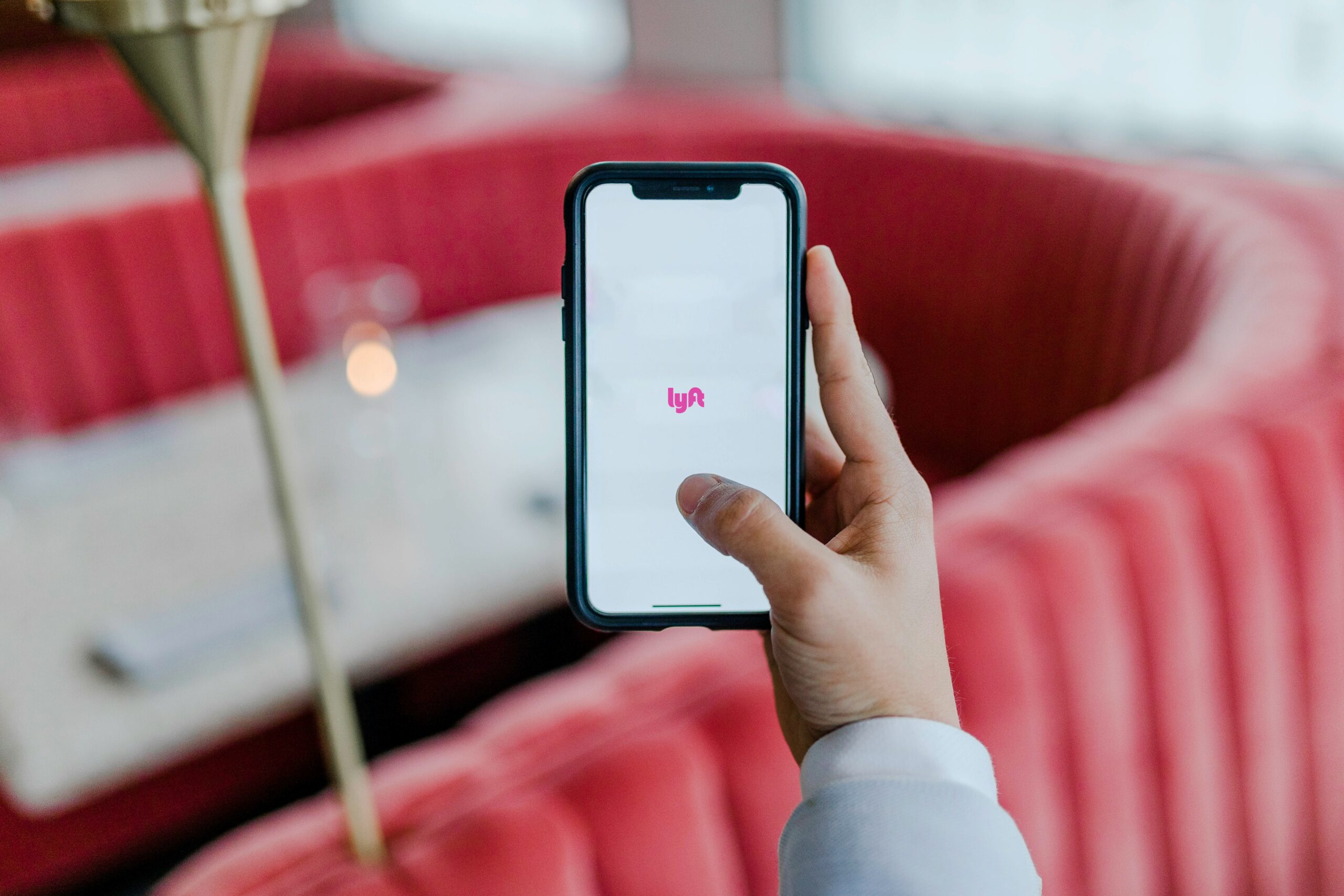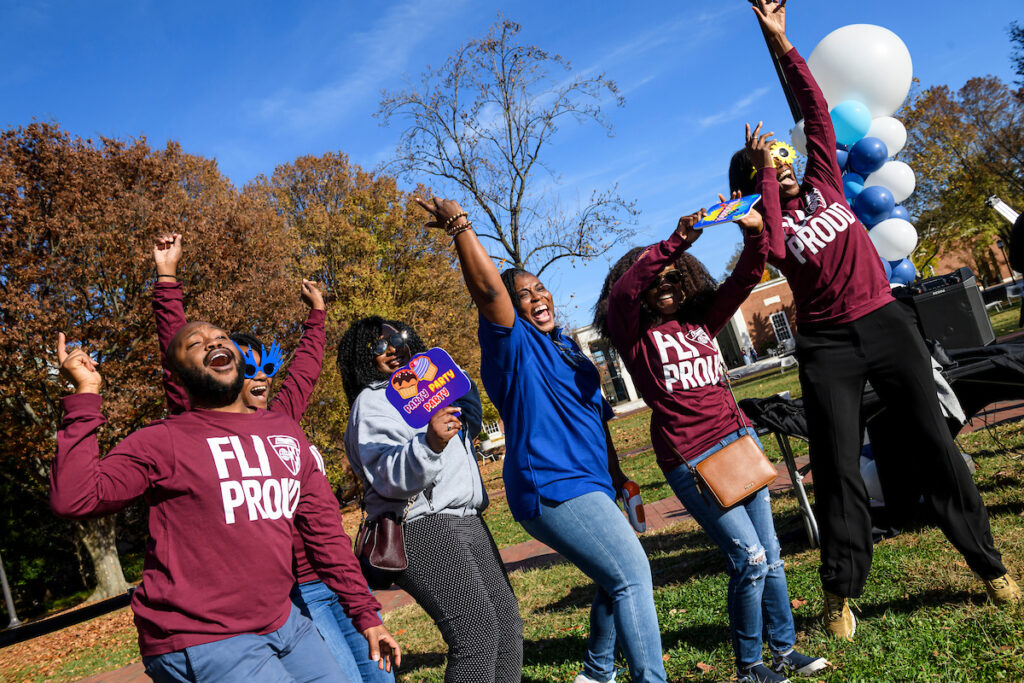
Hopkins Insider met with Yahellah Best, Associate Director of the Success Coaching Program in Academic Advising to learn about the Success Coaching Program in Academic Advising (SCAA) for first-generation and/or limited-income (FLI) students at Hopkins and for tips on connecting with faculty and other mentors.
This transcript has been edited for clarity and brevity.
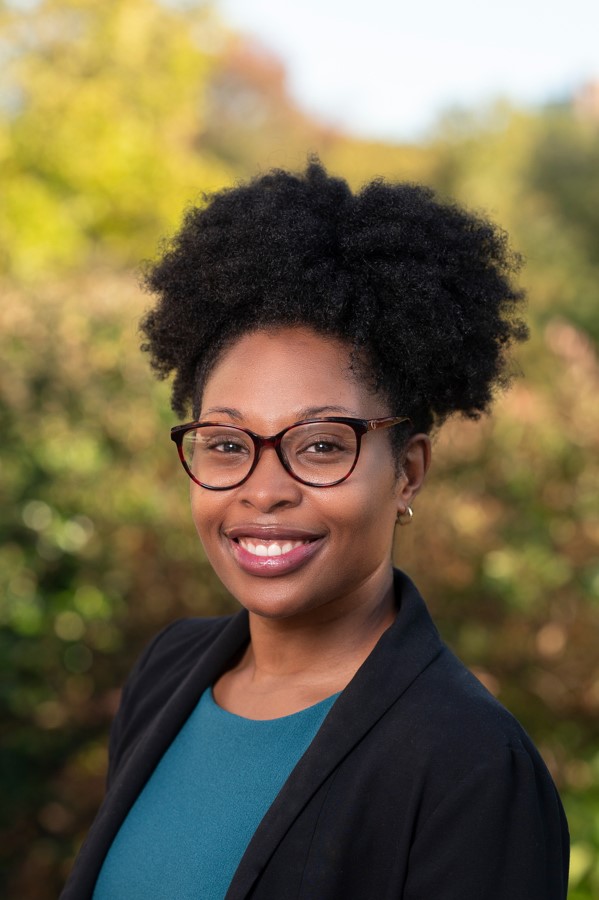
Tell us a little bit about yourself and what brought you to Hopkins.
My name is Yahellah Best, and I’m the Associate Director for the Success Coaching program in Academic Advising here at Hopkins.
I studied anthropology and ethnic studies, then became an academic advisor. As a general academic advisor, I had an interest in working with underserved populations. When I worked at Boston University, I started a student group and certain students would come to me for mentorship in areas they were struggling with. Because of my experience, I started looking for positions where I would specifically be working with FLI students or other underrepresented populations.
What is a Success Coach and what do they do for students?
As a success coach, we dig beyond the academics and focus on holistic and intentional advising. Of course, we talk to students about their requirements, what their academic interests are, and academic success. But we also ask about their experiences, values, family, and other things that impact their experience at Hopkins as well as their future moving forward. Some students talk to me about responsibilities back at home that may be affecting them while they’re in school or different factors they have to consider when choosing their major or path.
We want to make sure we’re connecting students with the resources they need, and we’re constantly following up with them. We meet with students twice a month for their first year, once a month in their second year, and at least twice per semester after that. We make close connections with our students so they know they can come to us immediately to share anything, whether it’s positive, negative, or just life updates.
How do you encourage students to take advantage of the different resources on campus?
We definitely see a lot of students who are hesitant to utilize resources because they’ve always had to figure out things on their own or they don’t want to seem like they need more help than others. So, we try to be encouraging. We explain that this is a part of the college process and asking for help isn’t a weakness; it’s a strength that can only make things better. And if the interaction doesn’t go the way you want, I’m here to support you.
I was considered a FLI student when I was an undergrad. I was first generation and a Pell recipient, and I was definitely reluctant to use different resources. I had to be very independent growing up and that was kind of a sense of pride. When I did ask for help, I didn’t always receive the best support, which was discouraging.
Being vulnerable and honest with my students about my own experiences helps them understand that they’re not just talking to some authority figure, but someone who’s working in conjunction with them. I make sure to check in on them, figure out where their hesitation is, and help them work through that. We focus on what they do really well and how to leverage those strengths.
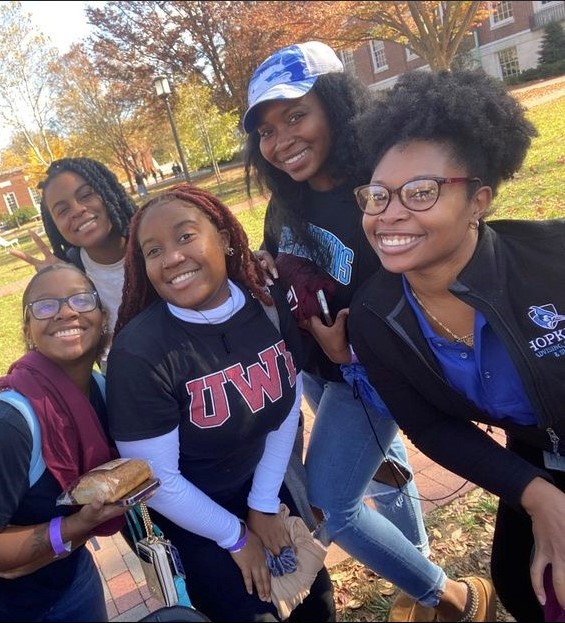
Why is it important for a student that you’re advising to go to office hours or connect with their professors?
There are multiple reasons why it’s important. First, to put a face to a name and for more personal advice. When working with a professor, it’s important for them to know what your interests are and where you want to go because they can help connect you to resources, other professors, or other opportunities that relate to those interests. They can also help you connect things in a way you may not have thought of before.
Secondly, if you’re having trouble in a class, spending one-on-one time with the professor can help them identify specifically what you should work on to do better in the course. Even if you are doing well in the course, it’s good to make those connections because, when it comes time to ask for recommendations, it’s always better to ask a professor you have a personal connection with. If they don’t know you, all they can write is: “This student did well in my class.” The people who are reading recommendations can tell when something is generic versus authentic and genuine, so it’s important to make sure professors know more about you and your specific interests.
What has the response been like from students who have taken that advice?
Mostly positive feedback. I mean, there’s always going to be some experiences that don’t go the way we hoped. When that happens, I coach them through moving forward and connect them with other resources. But the vast majority of the time students are like, “Wow, they knew my name and talked to me about something I didn’t even notice I was doing” or, “They really clarified this for me” or, “In talking to them about this interest, they connected me to this lab where I can do research.” Sometimes it’s even just, “We got to talk about this random little connection that we both have and now we joke about it in class.”
Coming from high school, people don’t necessarily see teachers or professors as human beings outside the classroom, so having that one-on-one time with the professor definitely helps to break down those barriers. It can help you feel more comfortable participating in class and taking more risks. Students end up having these great connections they never expected with their professors.
Do you have any advice for high school students about how to find a mentor?
For high school students, I would say get to know people. Talk to different people about their experiences, like teachers and people in places you find interesting, because you never know where you’re going to end up. What you initially think you want may not be what you want in the end. In high school, we have a limited idea of what our options even are. So, it’s about seeing what’s out there, getting to know people, asking them about their experiences, seeing who you connect with, and going from there.
I know some people feel like you have to have an “official” mentor. Like, you need to go up to them and say, “Will you be my mentor?” But that isn’t necessary. It’s usually an organic situation where they’re sharing their experiences and coaching you on how to get to where you want to go. And sometimes it may not end up being the person you expect.
What is your favorite thing about being a success coach?
When students come to me with some random information like, “Here’s a song I love, and I think you’ll like it too,” it makes me feel like I’ve really connected with them. A lot of students will say to me, “I’m so happy you’re my Success Coach because I get to talk to you about more than just academics.”
On the advisor side, when a student comes to me and says, “I’m glad I listened to you” or, “I wish I listened to you when I made this decision,” I appreciate that they’re being open and honest with me.
I really enjoy the personal things that students share with me. It’s nice when they feel like they can talk to me about things you wouldn’t necessarily expect in a conversation between a student and their advisor, but they feel comfortable sharing them with me. I love the connection I make with my students and that’s what always keeps me going.

